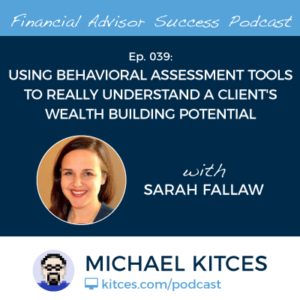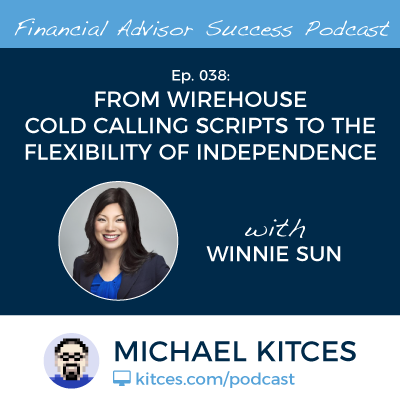Enjoy the current installment of "weekend reading for financial planners" – this week's edition kicks off with a good recap of the Winners and Losers in President Trump's new Tax Reform proposal, which appears to be "good" news for those who don't itemize deductions, high-income individuals, and especially owners of pass-through businesses (including many financial advisors themselves!), but bad news for those who live in high-tax-rate states, those with large homes and mortgages, high-wage employees, and people with large medical (or more recently, natural disaster) deductions.
From there, we have several advisor technology articles, from this week's blockbuster deal announcement that Envestnet is acquiring FolioDynamix (to form a combined entity that will support nearly $2 trillion of advisory and nonadvisory TAMP assets), to new reviews of the wealth management technology platform AdvisorEngine and a new Medicare enrollment solution for financial advisors (and their clients) called i65, and a nice listing of software solution that financial advisors can use to help improve their digital marketing presence and connect with prospects online.
There are also several practice management and marketing articles this week, including: why offering a "free first appointment" is not necessarily a good way to approach prospects; how telling your personal story, including the tough times in your life, can help you connect with prospects; how to shift your business towards a niche and strategies to refine it further; and a look at some recent research that reveals a new factor driving which clients refer their advisors: the extent to which they feel knowledgeable about their own investments.
We wrap up with three interesting articles, all about changing our own habits and mindset as financial advisors: the first explores how, if you really want to change and improve your habits, it's not just about making a commitment to do so, but actually trying to change your own self-identity and especially your environment to make it more conducive to the new habit; the second takes a challenging look at what it really means to be "open-minded" and the ideals to strive for (though they're difficult for anyone/everyone to achieve!); and the last is a fascinating look at how, despite the increasingly popular discussion of pursuing "work/life balance", that most people actually find their greatest moments of happiness when they are most deeply engaged, suggesting that perhaps the better prescription is not to be more balanced, but to be deliberately unbalanced and more focused, but with the internal self-awareness to recognize when it's time to hit the "pause" button or make a change.
Enjoy the "light" reading!

 Welcome back to the thirty-ninth episode of the Financial Advisor Success podcast!
Welcome back to the thirty-ninth episode of the Financial Advisor Success podcast! Welcome back to the thirty-eighth episode of the Financial Advisor Success podcast!
Welcome back to the thirty-eighth episode of the Financial Advisor Success podcast!
